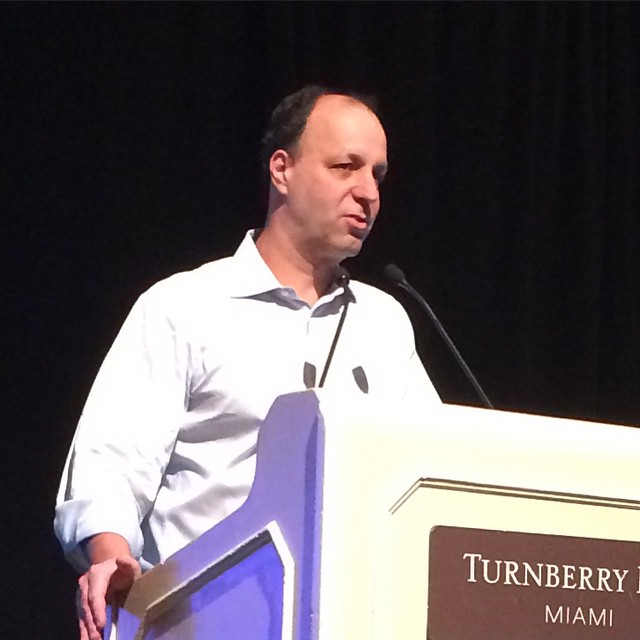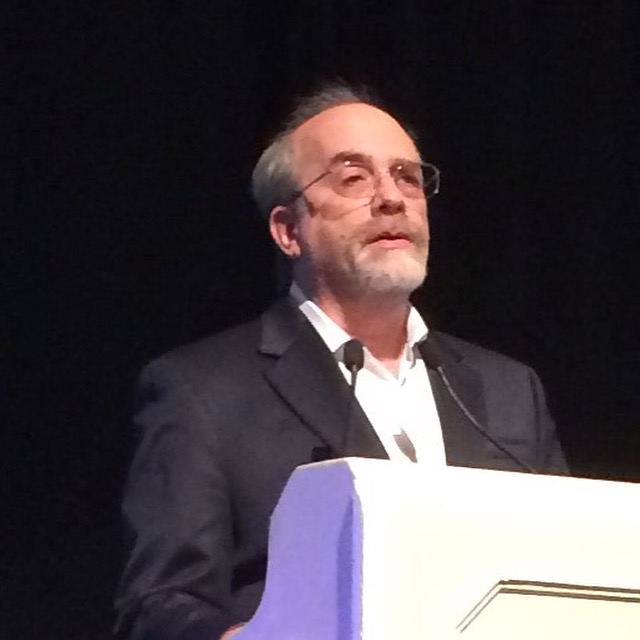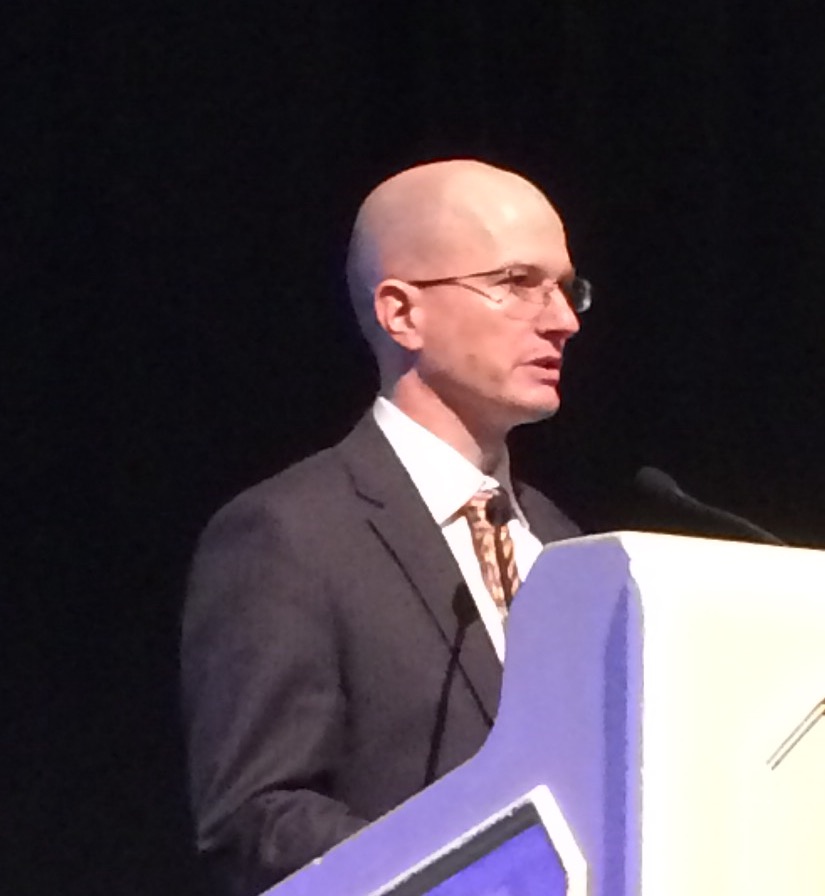The 2015 Epilepsy Pipeline Community Conference

Epilepsy News From: Wednesday, May 27, 2015
Community Corner: May 27, 2015
A special thank you to the Epilepsy Foundation of Florida, outstanding speakers, exhibitors, and an amazing number of people with epilepsy, families, and advocates who attended the 2015 Epilepsy Pipeline Community Conference on Saturday, May 16, in Miami.
Most of the presentations will be available on epilepsy.com by the end of June. Here is a preview of topics discussed at the meeting.
Points of View

Since epilepsy is a collection of many different seizure types, syndromes, and experiences, people may have very diverse experiences. Our day started with a few different points of view.
- Phil Gattone, president and chief executive officer of the Epilepsy Foundation, shared his personal story and passion for epilepsy, and how the Pipeline Conference has helped the Foundation further our mission of accelerating the development of new therapies and putting an end to seizures, epilepsy, and sudden unexpected death in epilepsy (SUDEP).
- Daniel Fischer shared his experiences with epilepsy as a father of a daughter with refractory seizures and Dravet Syndrome. As co-founder of Intellimedix and founder of Parent Powered Innovation, he has tackled these challenges in new ways and engaged parents to help drive the science and process of finding new therapies and the missing answers.
- Marisol Valdes is a woman whose journey with epilepsy has taken many turns over the years. After having achieved seizure control through medication for several years, her seizures returned when she became pregnant. Yet she still lives her life to the fullest through motherhood and becoming a community resource specialist for the Epilepsy Foundation of Florida!
The Challenges of Epilepsy

Dr. Steven C. Schachter, an epileptologist and board member of the Epilepsy Foundation, discussed the medical, therapeutic, psychosocial, and personal challenges that epilepsy may cause. Dr. Schachter emphasized that epilepsy is more than just seizures and that people with epilepsy and their families are the key to addressing its challenges. He also addressed challenging questions including:
- Why do we get epilepsy?
- How can it be prevented?
- When should you treat and with what?
- Why can't everyone get complete seizure control without side effects?
The Rare Epilepsies
Dr. Jacqueline French, from New York University and chief scientific officer of the Epilepsy Foundation, introduced us to the rare epilepsy syndromes. These are types of epilepsy that do not affect large numbers of people but can have serious consequences for the people who are affected. Dr. French encouraged families who are affected by one of these epilepsies to get involved in the Rare Epilepsy Network and help find answers to better understand and treat these conditions.
An Update of the Epilepsy Pipeline
Dr. Steven Schachter also reviewed the progress of the projects in the New Therapies Pipeline. Whether these projects are new therapies, devices, seizure detection and prediction tools, or something else, they all seek to help people living with seizures.
Medications and Other Therapies
-
An Update on New Seizure Medications and Generics was given by Dr. Michael Privitera from the University of Cincinnati Neuroscience Unit. Advances in seizure medications were discussed along with the results of a recent study comparing some brand seizure medications to their generic formulations.

- Rescue Therapies or medications that are given as needed when a person has clusters of seizures were presented by Nancy Santilli, NP, MSN. While Diastat is still the only FDA-approved medication for use of cluster seizures, many other formulations are in development.
- Medical Marijuana or Cannabis is another product that is being tested as a medication for epilepsy. Dr. Ian Miller from Nicklaus Children's Hospital in Miami and an investigator in a clinical trial of cannabis for epilepsy discussed the Florida experience with this treatment and the legal and regulatory issues surrounding its use.
Approaches for Treating Uncontrolled Epilepsy
- The Present State of Epilepsy Surgery was reviewed by Dr. Badih Adada of Cleveland Clinic Florida. The extensive presurgical evaluations and types of surgery currently available demonstrate how surgery can be very helpful therapy for some people with refractory epilepsy.
- Dr. Michael Duchowny from Nicklaus Children's Hospital in Miami then discussed new approaches and concepts for Pediatric Epilepsy Surgery, including changes in the pre-surgical workup, timing, extent of surgery, and types of surgery now available.
- Patty Shafer, RN, MN, epilepsy clinical nurse specialist at Beth Israel Deaconess Medical Center in Boston, explored what's new for Devices in Epilepsy including ways to detect, record and alert people of seizures, as well as new clinical information and management systems.
- Christopher Flaig, a young man who underwent multiple epilepsy surgeries that ultimately controlled his seizures, helped us understand the impact of seizures and surgery on a person's life.
Living with Epilepsy

While finding ways to treat epilepsy more effectively is critical, living with epilepsy continues to pose many challenges and problems for everyone.
- Issues relating to Thinking, Behavior and Mood were addressed by Dr. Andres Kanner from the University of Miami.
- Patricia Dean of Nicklaus Children's Hospital explored Self–management Strategies for Safety in Epilepsy.
- Juanita Edwards, social worker at Epilepsy Foundation of Florida, and the Scheinman Family, founders of Livy's Hope, tackled one of the most important topics of the day – Family and Relationships – It's more than just seizures!
Movie Time!

Closing an amazing day, participants were treated to a viewing of "The Last Pyramid," an award-winning documentary about Trish Barnes and her journey using stained glass to move forward after losing her son to epilepsy. The documentary is a must-see for anyone touched by epilepsy and, more importantly, by people who don't know about epilepsy. The Foundation thanks the tremendous efforts of so many for their dedication to this project, including:
- Greg Grunberg, executive producer
- Patty Fritz, vice president, policy and communications, at UCB, Inc., which provided a grant that made the film possible
- David Schachter, director and producer
- Samantha Macher, writer and producer
Thank you again to all who participated, shared their experiences, and made new friends and connections. Stay tuned to view the sessions on epilepsy.com!
Best wishes to all!
Authored by
Patty Obsorne Shafer RN, MN
Reviewed Date
Wednesday, May 27, 2015
